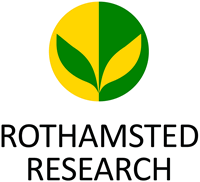About the Project
Most disease causing phytopathogenic species that attack agricultural crops have haploid genomes and short life cycles (days/weeks), compared to the diploid/polyploid genomes and longer life cycles (months/year) of their hosts. As the world’s climate changes, new crop cultivars with improved traits combined with novel biopesticides are introduced. Phytopathogenic species regularly adapt, thereby causing new disease outbreaks. Over the past decade the genomes of the most important crop infecting fungal pathogens have been sequenced [1]. These ‘genetic blueprints’ provide the ideal starting point to explore how pathogen genomes adapt to imposed external stresses.
In this PhD project, the student will explore the interaction between hexaploid wheat and the haploid fungus Fusarium graminearum (Fg) which causes the globally important disease ‘Fusarium ear blight’. Fg infects wheat crops at flowering, reducing yield and quality, while contaminating the crop with mycotoxins [2]. The Fg genome is fully completed and annotated by Rothamsted scientists [3].
Two genetic-based strategies exist to control Fg-wheat infections, namely (i) stacking of QTLs identified in naturally semi-resistant wheat accessions such as the major Fg-resistance QTL identified in the Chinese cultivar Sumai-3 [4] and (ii) Host-Induced Gene Silencing (HIGS) [5].
The aim of this PhD is to compare the evolution of the Fg genome during exposure to QTL or HIGS mediated Fg resistance in wheat. Fg expressing a green fluorescence protein (GFP) reporter construct will be serially passaged over 18 months, in either Sumai-3 or HIGS wheat plants. Prior to the start of the experiment the FgGFP HygR strain will either be exposed or not to the chemical mutagen ethyl methanesulfonate (EMS) to induce single nucleotide changes. After each passage the FgGFP strain will be re-isolated. After five serial passages (~8 months) a representative FgGFP strain from each of the four evolution streams will be selected and sequenced using PacBio/Illumina technologies and compared to the original reference strain. Five further serial passages will be completed with re-sequencing of one strain representative per treatment and all strains that exhibit an altered disease-causing ability on wheat. The student will then complete a detailed inter-genome comparison over the rest of the project to define the various macro- and micro-evolution events and go on to explore their molecular and biological consequences in planta.
At the start of the PhD, the student will undertake a short research project (5.5 months) in the Biosciences Department at the University of Exeter whilst also undertaking relevant advanced taught course. In this short project the student will analyse the reference Fg genome to explore the location and composition of transcriptionally co-regulated gene clusters activated early during wheat ear infection and also explore the sequence variation in the genes found to be differentially expressed using newly available full gene sequence information for an additional 16 Fg isolates. This short project will ensure the student is fully familiar with the Fg genome, fungal genome landscapes and the spectrum of bioinformatics tools and approaches available to undertake full genome comparative analyses within and between pathogenic and non-pathogenic fungal species/strains.
At month 6 the student will transfer full time to the Rothamsted Research, a government sponsored Institute located just north of London in the county of Hertfordshire (http://www.rothamsted.ac.uk/).
Extensive training will be given throughout the PhD studies and will include experimental design, data handling, fungal genome analyses, exploring transcriptome data sets, statistics, report writing, presentation skills.
Supervisor team:
At Rothamsted Research: Professor Kim Hammond-Kosack
At University of Exeter: Dr David Studholme
Others in supervisory team at Rothamsted Research: Drs Martin Urban, Neil Brown (BBSRC FL Fellow), Robert King, Wing-Sham Lee
This PhD is part of the BBSRC funded SWBio DTP scheme. Eligibility details are to be found within the main SWBio DTP advertisement (http://www.bristol.ac.uk/swbio/swdtp_about/).
This PhD project will start in mid Sept 2017.
For further information on this project, please contact Prof. Kim Hammond-Kosack ([Email Address Removed]).
Funding Notes
The studentship will cover:
a stipend (at the standard Research Councils UK rate; currently £14,296 per annum for 2016-2017)
research and training costs
tuition fees (at the standard Research Councils UK rate )
additional funds to support fieldwork, conferences and a 3-month internship

 Continue with Facebook
Continue with Facebook

